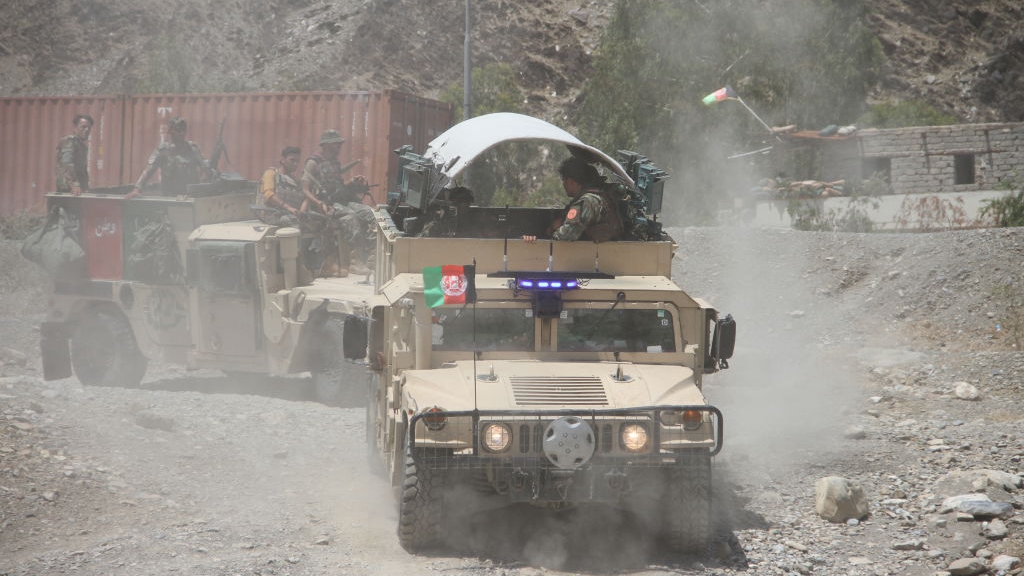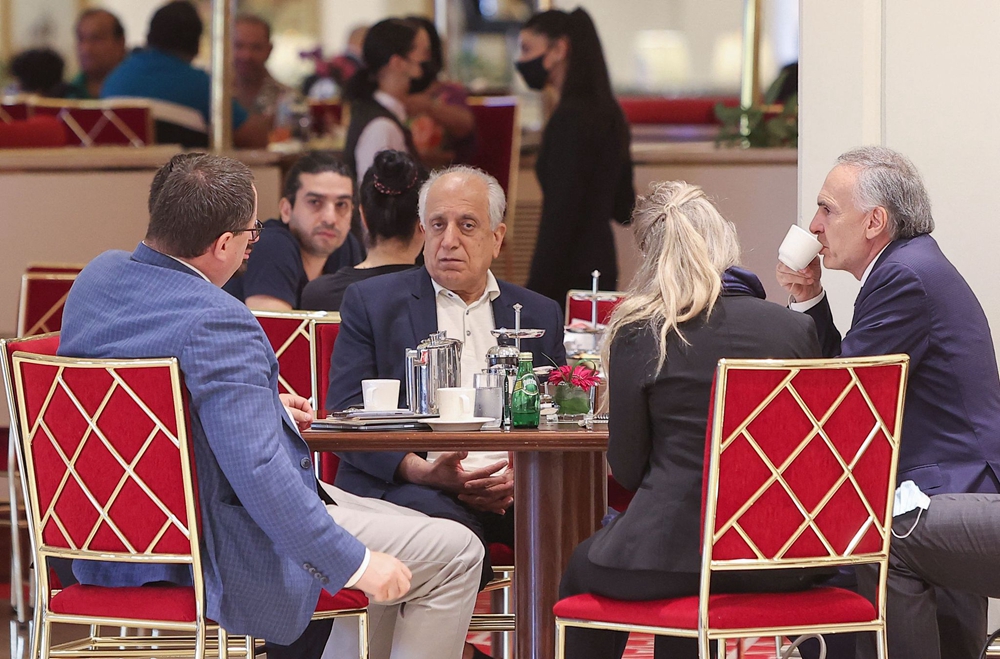
Afghan security forces start operations against Taliban fighters around Torkham border point between Afghanistan and Pakistan in Nangarhar Province, Afghanistan, July 23, 2021. /Getty
Afghan security forces start operations against Taliban fighters around Torkham border point between Afghanistan and Pakistan in Nangarhar Province, Afghanistan, July 23, 2021. /Getty
The Taliban and the Afghan government are far apart in U.S.-backed talks on bringing peace to the country, with the insurgents demanding "the lion's share of power" in a new government and Kabul wanting to bring them into the current government, the special U.S. envoy on Afghanistan said on Tuesday.
Afghan-born veteran U.S. diplomat Zalmay Khalilzad's comment coincides with Taliban advances on provincial capitals as the U.S. troop pullout nears completion after 20 years of war.
"At this point, they (the Taliban) are demanding that they take the lion's share of power in the next government given the military situation as they see it," Khalilzad told the Aspen Security Forum in an online conference.
Read more:
Afghan president blames 'abrupt' U.S. pullout for worsening security
Graphics: What you should know about U.S. troop withdrawals from Afghanistan
The deadlocked negotiations in the Qatari capital of Doha were the subject of a telephone call on Tuesday between U.S. Secretary of State Antony Blinken and Afghan President Ashraf Ghani, the U.S. State Department said, adding that the two agreed on the need to accelerate the talks.
Blinken and Ghani also "condemned the ongoing Taliban attacks and displacement of the civilian population," State Department spokesman Ned Price said in a statement.
Price told reporters that the insurgents would become "international pariahs" if they renege on their commitment to the negotiations "and the concern on the part of all of us, one of the many concerns, is that the result will be civil war."

U.S. special envoy Zalmay Khalilzad (C) sits in a coffee shop ahead of a session of the peace talks between the Afghan government and the Taliban in the Qatari capital Doha, July 17, 2021. /CFP
U.S. special envoy Zalmay Khalilzad (C) sits in a coffee shop ahead of a session of the peace talks between the Afghan government and the Taliban in the Qatari capital Doha, July 17, 2021. /CFP
Khalilzad was the architect of the U.S.-Taliban deal for a U.S. troop pullout reached in February 2020.
In his rare public assessment of the Doha talks started under that deal, Khalilzad said peace can only be reached through a ceasefire and negotiations that would establish a transitional government.
Ghani's administration says the talks should focus on "bringing the Taliban into the current government," he said.
The Taliban contend that Ghani's government "is the result of military occupation" and they want an agreement on a transitional government and constitution, Khalilzad continued.
"They are far apart," he said. "They are trying to affect each other's calculus and the terms by what they are doing on the battlefield," he said.
Peace talks between the Afghan government and Taliban negotiators started last year in Doha, without making any substantive progress despite a few rounds. However, the two sides committed to speeding up the talks at a recent meeting.
During a visit to China last week, the Taliban's political chief Mullah Abdul Ghani Baradar said the group is sincere about seeking peace and is willing to work with other parties to create an extensive and inclusive political arrangement that is acceptable to all Afghan people.
Nevertheless, the security situation continues to worsen in Afghanistan. A massive blast rocked Kabul on Tuesday evening, sending a thick plume of smoke into the sky. A security official said the explosion happened near Defense Minister Bismillah Mohammadi's residence in central Kabul.
Meanwhile, fighting is raging for Lashkar Gah, the capital of southern Helmand Province, with the United Nations saying at least 40 civilians were killed in the last 24 hours.
(With input from Reuters, AFP)

